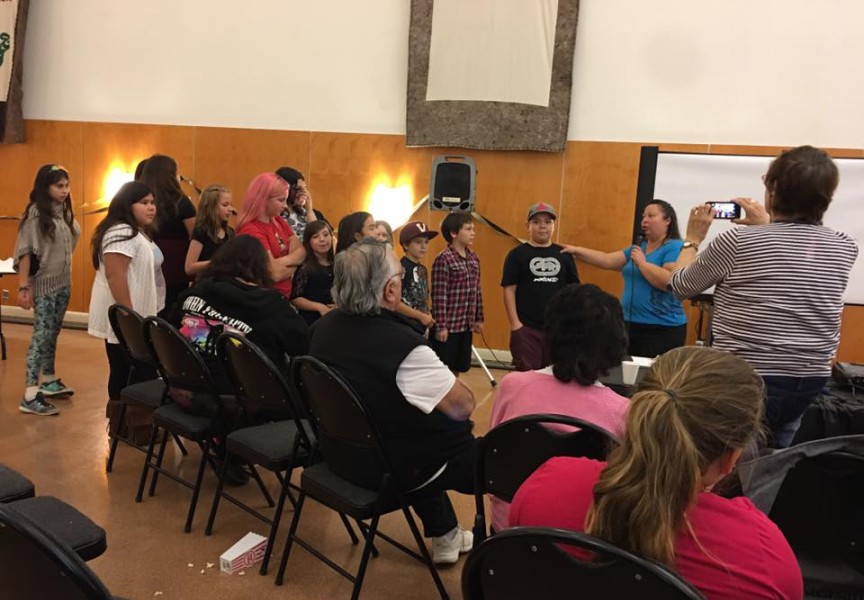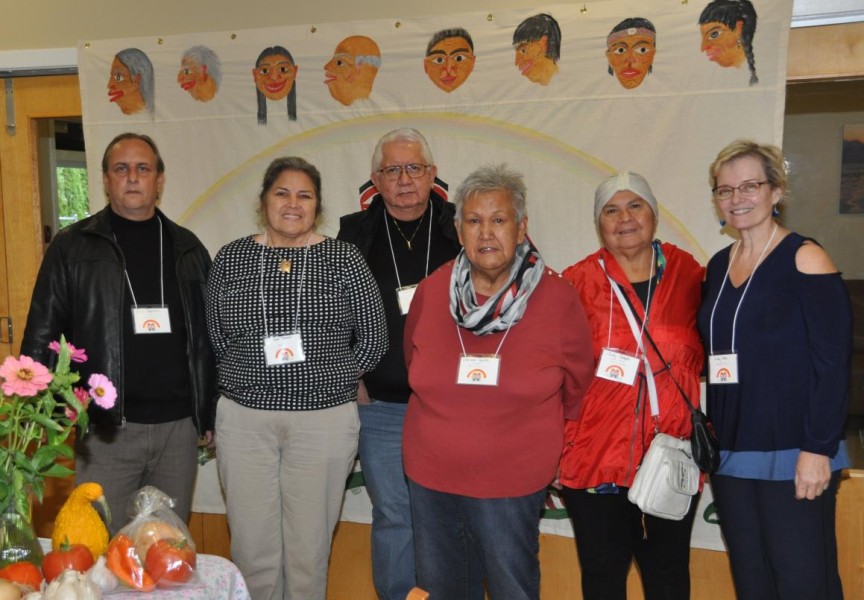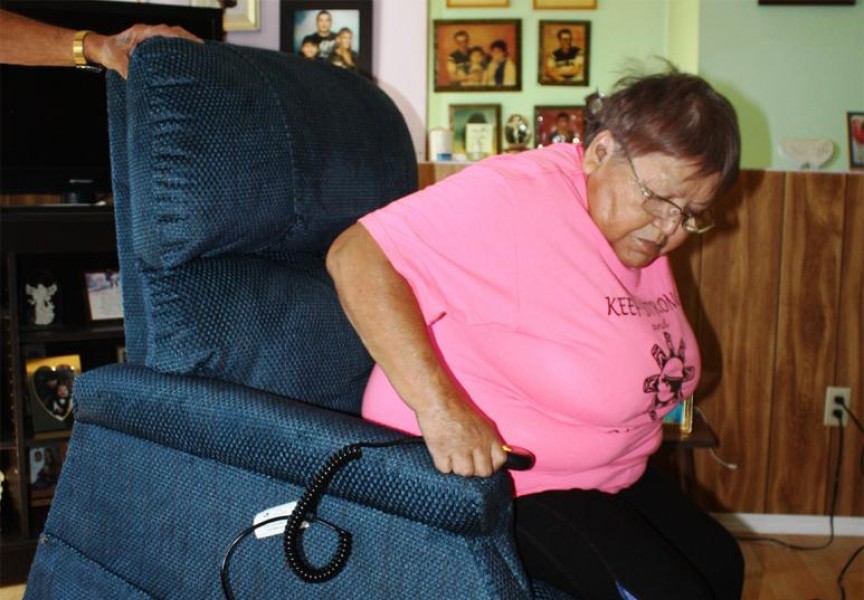Dawna Johnson-Day brings a wealth of classroom and administrative experience to the table in her new role as Manager of Education Services with the Nuu-chah-nulth Tribal Council.
Johnson-Day joined NTC in July 2013, after moving from Ontario with her partner to be closer to their daughters who are members of the Fort William (Ojibway) First Nation.
“It’s been a long-term goal for us to get to B.C. Our two daughters are here and we have two grandchildren in Duncan. We decided this was the place to be,” she said.
Born in Southern Ontario, Johnson-Day spent most of her early years in Thunder Bay, and did her post-secondary education at Lakehead University. But not all in one chunk.
“I first received an Honours Bachelor of Science in Forestry, and worked in forestry for 16 years before I got into education. Then, with the government cutbacks in the [forest] industry, I went back to school to become a teacher.”
Johnson-Day completed her Bachelor of Education, and then followed that up with a Master’s degree before going into the classroom with the Superior-Greenstone School District near Thunder Bay in 1996.
While a high school biology/science teacher by trade, it was a small district, and Johnson-Day also taught courses like Sociology and Business Math, along with all of the sciences (“except Physics”).
She subsequently became vice-principal in an elementary school, then in a high school setting. In 2005, she became a school district superintendent (the rough B.C. equivalent would be a director, she explained), then moved over to the Ontario Ministry of Education.
Johnson-Day took over as Regional Manager for the ministry, and also served as the provincial lead for Aboriginal Education.
Her duties included providing oversight for all school districts in Northwestern Ontario, which included nearly 50 First Nations schools and public schools with very high populations of Aboriginal students.
“In Ontario, First Nations schools are considered private schools, so they operate under a different umbrella,” she explained. Mainly, they require a MoE superintendent to oversee specific operational aspects, such as curriculum.
That administrative experience has translated directly to her new role at NTC.
“We support everything from pre-school to post-secondary. It differs by nation, however.”
While Johnson-Day’s department has some responsibilities with band schools, the greater portion of their outreach/support work is with elementary, middle and secondary schools within School Districts 70 and 84.
One critical part of their mandate is to provide opportunities for Nuu-chah-nulth students to acquire post-secondary education, right through the Masters and PhD levels.
To accomplish that, NTC has developed partnerships with numerous universities, Johnson-Day explained.
Students who are eligible can receive funding supports for living allowances, tuition, books and other expenses.
But it’s not just degree courses, she added. There are numerous certification programs that are also NTC-approved for student subsidies.
“At the school district level, we have two agreements in place with SD70 and SD 84,” Johnson-Day said.
Under a Local Education Agreement, each school district, in partnership with NTC, sets the level of financing and resourcing for NTC Education Workers.
An Aboriginal Enhancement Agreement spells out how schools provide opportunities for aboriginal students in the district. The AE is always subject to re-tooling and improving, Johnson-Day said.
“The SD84 AE is up for renewal, and over the past spring, we have visited communities in SD84’s jurisdictional area to get some community consultation on what’s going into the next enhancement agreement.”
The consultation process involves Mowachaht-Muchalaht, Nuchatlaht, Ehattesaht and Kyuquot First Nations. Each has an elected councillor in an aboriginal education portfolio.
“They are very active in bringing supports to the schools,” Johnson-Day said.
At the school level, it is the Nuu-chah-nulth Education Support Workers – eight in SD70 and five in SD84 – whose mandate is to help aboriginal students realize their full potential academically, socially and culturally.
“They are there to embed cultural practices into the day-to-day stuff that happens in the schools,” Johnson-Day said.
To that end, they plan activities like potlatches, drum-making workshops and cultural events, which the entire school population takes part in.
Johnson-Day said while there is no direct mandate to inculcate First Nations language and culture in the non-aboriginal school population, “in practice, that is the effect.”
Johnson-Day gave stellar marks for her team, since she took over last July.
“It’s fantastic. What really stands out is the drive to do great things for aboriginal students,” she said. “There is still a lot of need for support, but a very, very dedicated team of people here in the Education department and in NTC in general, to help students achieve their goals, and, at the same time, really focus on retaining language and culture, which is of the utmost significance.
“The workers in the schools are incredibly compassionate and caring. A couple of them have worked over 20 years in the schools with First Nations students. And they've made a real difference in the system.”
The Education Department has just been re-structured. We are very excited to have Reg Sam and Kelly Johnsen move into supervisory roles in the department.
“This will make our connection to the communities, schools and students even stronger.”






